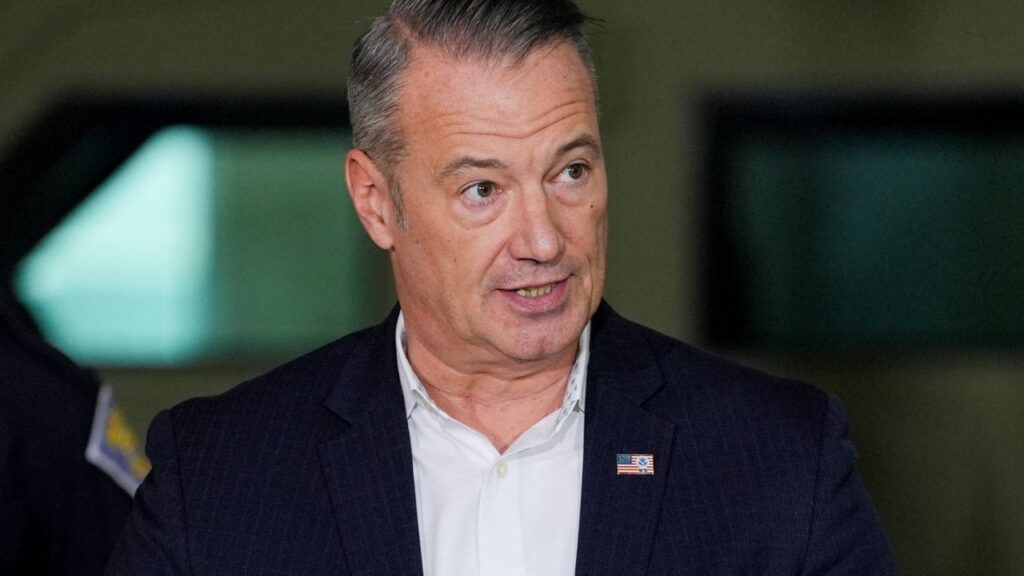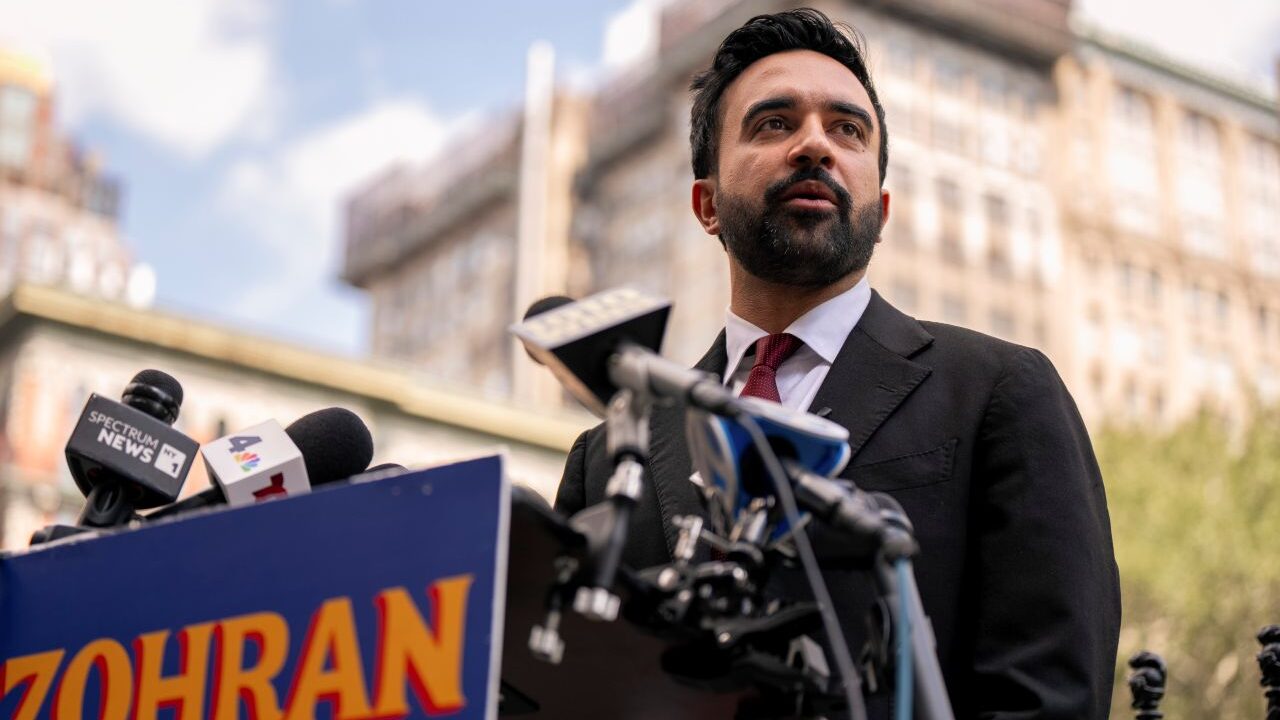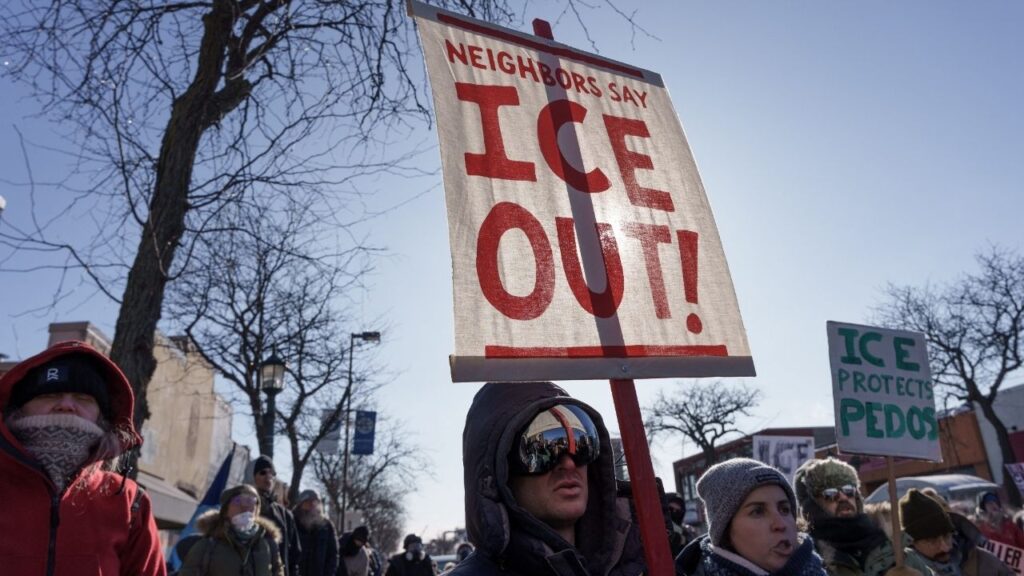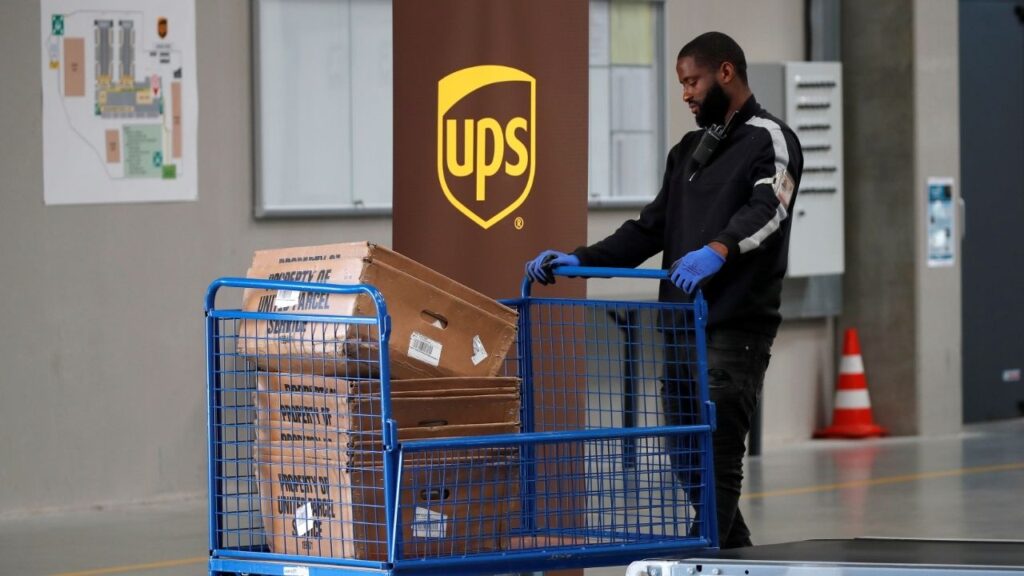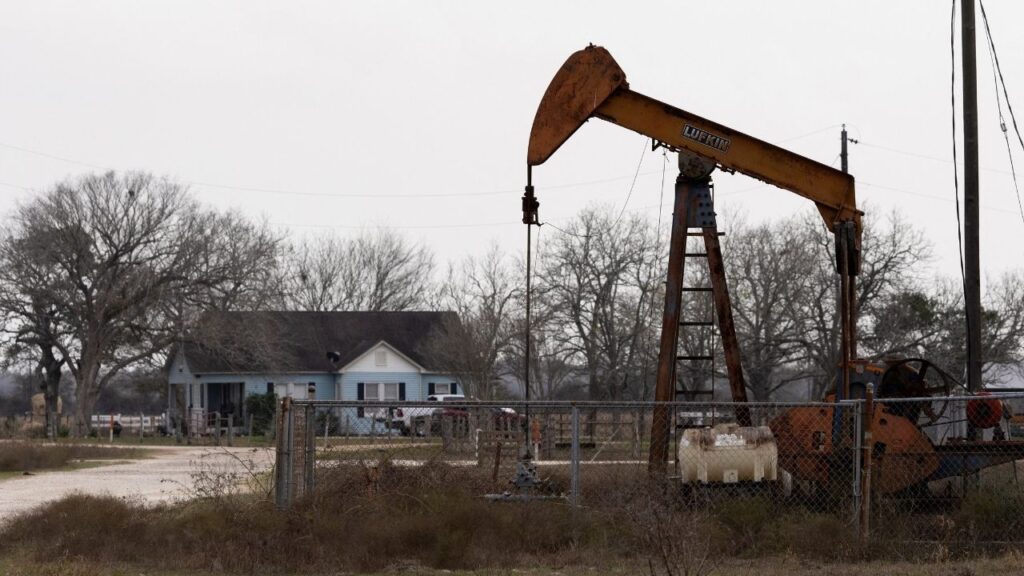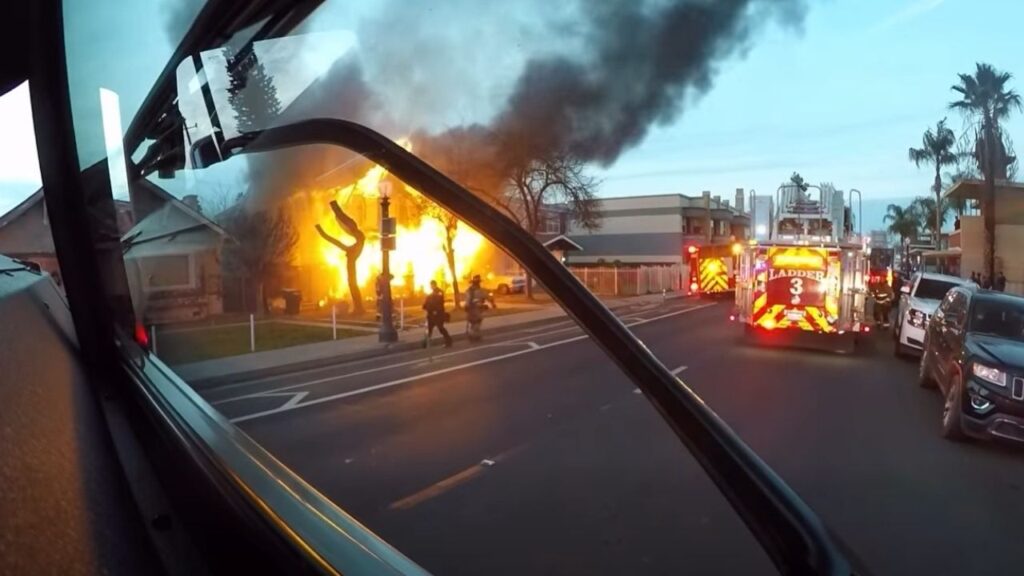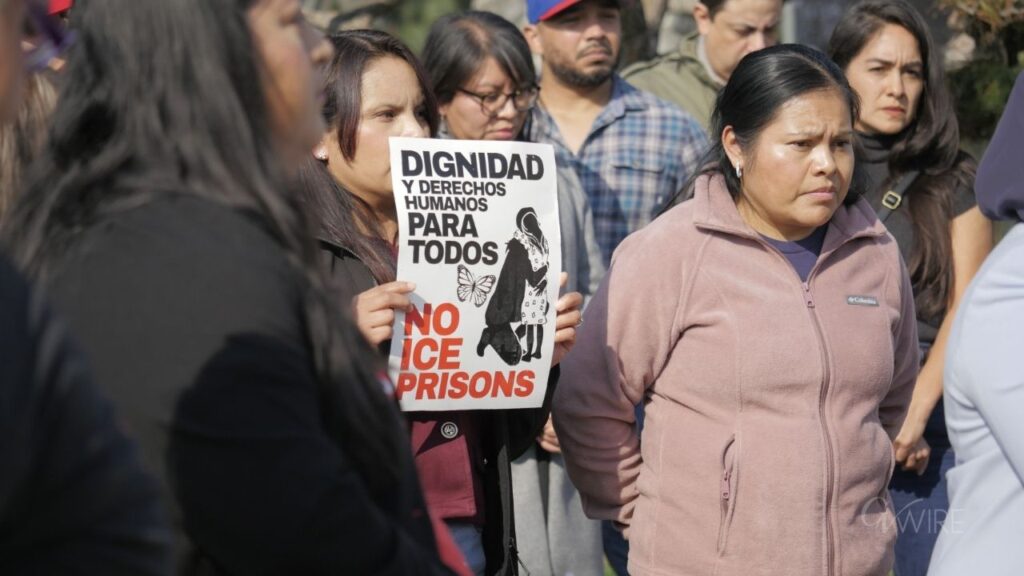Zohran Mamdani, the Democratic mayoral nominee for New York, addresses a news conference in New York, Sept. 3, 2025. As the horrors of Sept. 11, 2001, unfolded, Mamdani, who was 9 at the time, was one of the countless New York City children who were picked up early from school. (Angelina Katsanis/The New York Times)

- Zohran Mamdani, the Democratic nominee for New York mayor, recalls a city transformed by the 9-11 tragedy and the lingering Islamophobia.
- “It feels like now those Muslim 9/11 kids are having the moment where we can show that this city is our home and that we belong here,” a Mandami supporter says.
- Former governor Andrew Cuomo is also running for mayor. He calls Mamdani a "terrorist sympathizer."
Share
|
Getting your Trinity Audio player ready...
|
NEW YORK — It was the second day of classes at the Bank Street School for Children in New York City when the planes hit the World Trade Center. Zohran Mamdani can recall his father picking him up early to walk him home, the streets in a state of unease.
He was 9 years old at the time, having moved to New York City two years earlier from South Africa. His memories of the attack and the days that followed have grown hazy with time. But he can clearly remember what it was like growing up in its aftermath, in a city transformed by tragedy, and the Islamophobia that lingered.
“It became a fact of life,” Mamdani, the Democratic mayoral nominee, said in an interview this week. “It was this horrific day that was also for many New Yorkers the moment at which they were marked an ‘other.’ ”
Now, 24 years later, Mamdani is on the precipice of becoming the city’s first Muslim mayor, a potential milestone for the hundreds of thousands of Muslims who live here and a signpost of broader acceptance, even as Mamdani has faced attacks because of his faith.
Mamdani Inspires Hope In Young Muslim Americans
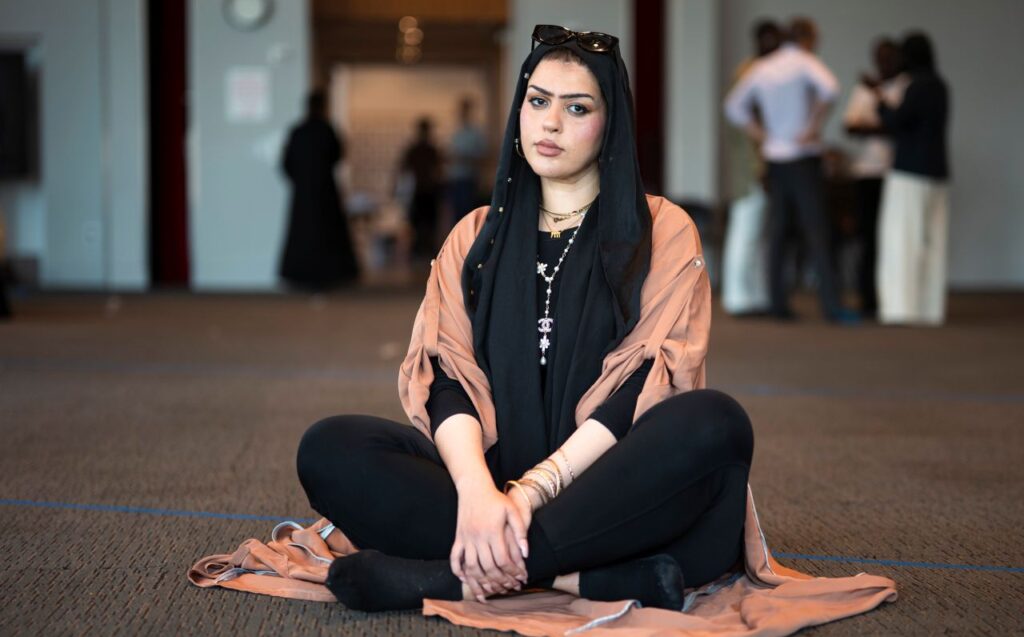
After a recent prayer service at the Islamic Center at New York University, Amani Al-Khatahtbeh, 33, an author and entrepreneur, said that Mamdani reflected the hopes of younger generations.
“We are facing the height of Islamophobia today, but at the same time, we’re witnessing an unprecedented popularity with this brown Muslim candidate for the country’s biggest city,” she said.
Al-Khatahtbeh, whose family is of Palestinian and Jordanian descent, wrote a book about growing up in New Jersey after the 9/11 attacks and the discrimination she and other Muslim Americans faced in their wake.
“It feels like now those Muslim 9/11 kids are having the moment where we can show that this city is our home and that we belong here,” she said.
Mamdani Will Attend Thursday’s 9/11 Commemoration
The 9/11 attacks were a formative experience for Mamdani and a common topic of discussion in his home. His mother, Mira Nair, an Oscar-nominated filmmaker, directed a short film in 2002 about Muhammad Salman Hamdani, a Muslim man who died in the attacks. Several years later, his father, Mahmood Mamdani, a professor at Columbia University, published a book called “Good Muslim, Bad Muslim” that explored the factors that led to the attacks.
Zohran Mamdani has said in a handful of interviews that his teacher at Bank Street told him on Sept. 11 that something had happened that morning and warned him that he might be bullied. The teacher told The New York Times that while she did not recall that specific conversation, the class likely discussed ways to make sure students felt supported and safe in the days and weeks following the attacks.
Mamdani plans to attend the 9/11 commemoration in lower Manhattan on Thursday, along with other elected officials. He said he would be thinking of the victims and their families.
“The first thing is to honor the memories of those that were killed,” he said. He described “learning their stories over the many years that I’ve been a New Yorker, the deep sorrow, that continues to this day, of futures that were stolen from so many and families that continue to live with that.”
Although Mamdani has reached out energetically to Muslim New Yorkers, he has not foregrounded his identity in his campaign, which has focused chiefly on affordability.
Imam Khalid Latif, the executive director of The Islamic Center of New York City and a friend of Mamdani’s, said that it was affirming to see so many New Yorkers embrace him.
“He’s showing people who we are by showing who he is; he is running on principle, on ethics, on values,” he said. “He is speaking to individuals from diverse backgrounds, and his religion is a part of that identity and informs his sense of the collective and common good.”
The imam’s sense of pride was mixed with some unease. He said he remembered the racial profiling, police surveillance and hate crimes against Muslims that took place after 9/11. He said he was not surprised about the backlash Mamdani has faced because of his religion.
Cuomo Calls Mamdani a “Terrorist Sympathizer’
Indeed, Mamdani has weathered a slew of attacks, including from the president and from his leading campaign rival, former Gov. Andrew Cuomo.
Cuomo, whom Mamdani defeated in the primary and who is running again in the general election, has called Mamdani a “terrorist sympathizer” over his criticism of Israel.
He held a news conference Tuesday near ground zero, alongside an emergency worker who responded to the attacks, to try to link Mamdani to Hasan Piker, a popular Twitch and YouTube streamer who once said America “deserved 9/11.”
Rich Azzopardi, a spokesperson for the Cuomo campaign, said that the attacks had nothing to do with religion and that instead of answering questions about his past statements, Mamdani “literally runs away from reporters and New Yorkers demanding answers.”
Mamdani called Cuomo’s tactics “disgusting” and an example of “the exact kind of politics that New Yorkers are sick of.”
“To weaponize one of the darkest days in our city’s history to stoke Islamophobia and score cheap political points is beneath the dignity of New Yorkers,” he said.
Other attacks have come from President Donald Trump and his allies in Congress, who have questioned whether Mamdani was in the country legally and have threatened to arrest him or deport him. Mamdani, a state Assembly member who represents a district in Queens, was born in Uganda to parents of Indian descent and moved to New York in 1999. He became a U.S. citizen in 2018.
Laura Loomer, an adviser to the president, posted on social media on primary night that there would be “another 9/11 in NYC” and Mamdani “will be to blame.” Actress Debra Messing wrote on social media that she would not vote for Mamdani because he “celebrated 9/11.”
In fact, Mamdani has expressed sadness over the 9/11 attacks. And in the final days of the primary campaign, he tearfully recounted death threats he and his family had received, as well as a message that said, “The only good Muslim is a dead Muslim.”
New York City’s Muslim Neighborhoods
The city has a significant Muslim population centered in neighborhoods including Bay Ridge in Brooklyn and Jackson Heights in Queens, which Mamdani won during the primary. Mamdani’s victory was fueled in part by many voters from those communities who did not regularly turn out in elections.
And many of the Muslims who voted for him said they were drawn by his platform, including Sidra Tufail, 41, of the Upper West Side, who works in supply chain management.
Tufail, who grew up in Pakistan and lived in several countries before moving to Manhattan, described New York as an “anomaly.”
“It’s so diverse here. It’s such an international community. There’s so many different backgrounds,” she said. “I think the fact it’s such an inclusive place is helping him.”
Umer Khan, 33, who works in information technology and lives in Downtown Brooklyn, said he anticipated that Mamdani’s success would inspire other Muslim New Yorkers to engage more in civic life.
“Just because you’re Muslim or belong to a certain religion doesn’t mean that you shouldn’t get involved, right?” he said. “You should absolutely get involved.”
This article originally appeared in The New York Times.
By Emma G. Fitzsimmons and Tim Balk/Angelina Katsanis/Mostafa Bassim
c.2025 The New York Times Company
RELATED TOPICS:
Categories
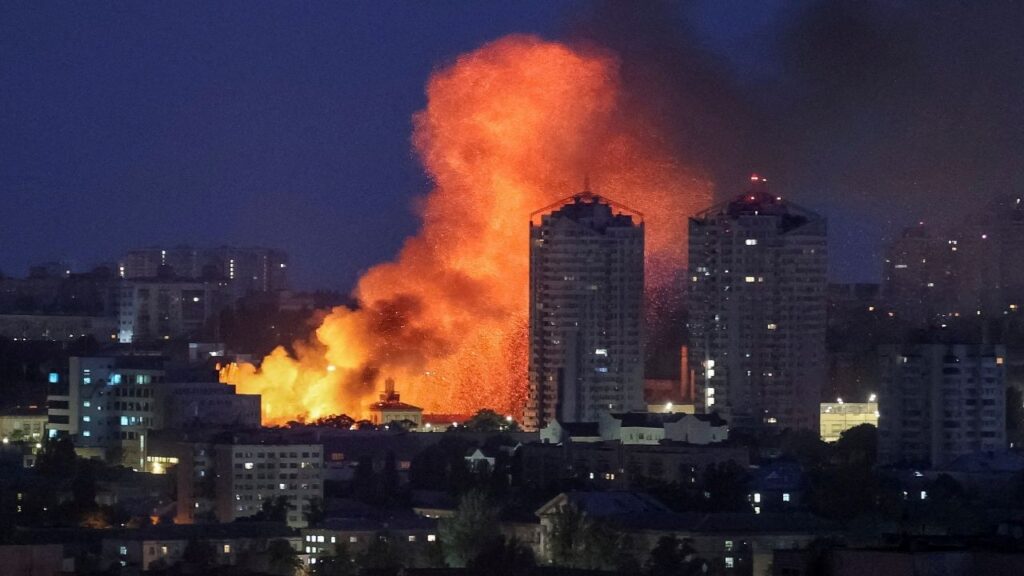
Atomic Scientists Set ‘Doomsday Clock’ Closer to Midnight Than Ever
